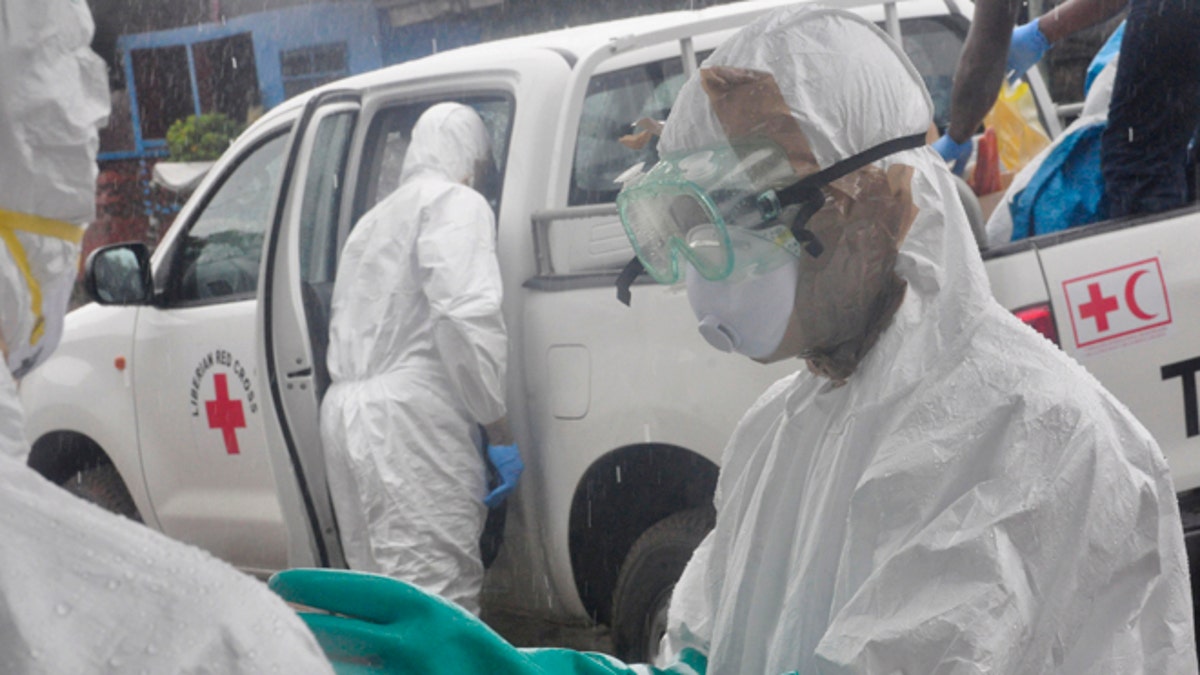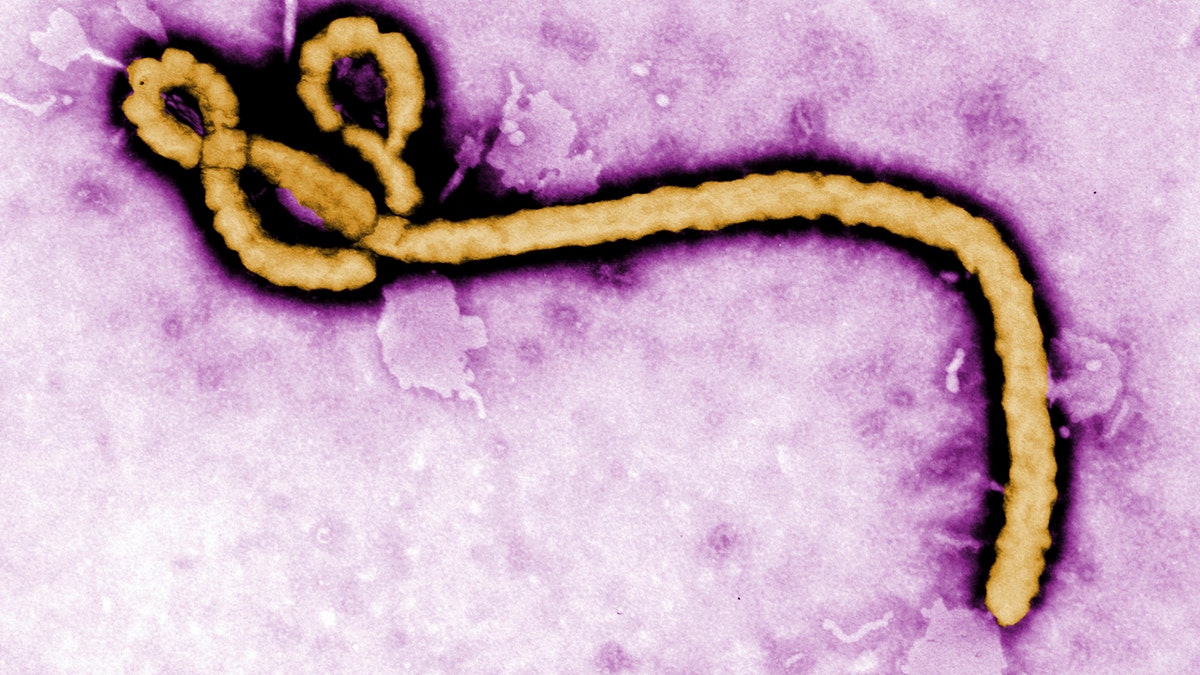
Health workers dressed in protective gear prepare to load the body of a woman suspected to have died from Ebola virus, in New Kru Town at the outskirt of Monrovia, Liberia, Wednesday, Oct. 8, 2014. Liberia has been among the hardest hit nations at the centre of the long outbreak, which has killed more than 3,000 people, as of Friday, there had been 3,834 confirmed Ebola cases and 2,069 deaths in Liberia, according to the World Health Organization. Forty-four percent of the Ebola cases were reported in the past three weeks, a signal that the infectious disease is spreading.(AP Photo/Abbas Dulleh)
Health officials in the Democratic Republic of the Congo said the Ebola outbreak in the African nation has been “brought under control” as the country has not recorded a new case of the virus in the last 21 days.
“At this stage, we can say that the spread of the epidemic has been brought under control and that’s thanks to the quality of national and international experts dispatched to the zone,” Congolese Health Minister Oly Ilunga Kalenga told Reuters.
Ilunga added that authorities have confirmed four cases of Ebola in the northeastern Bas-Uélé province – up from two previously – and that three other cases are considered probable.
While the World Health Organization has not confirmed the health minister’s assertion that the virus’ spread is under control, it noted on Tuesday that WHO and its partners are “rapidly and effectively” coordinating a response.
“WHO and other partner agencies led by the Ministry of Health have secured and set up a base to coordinate their work and end the outbreak as quickly and as safely as possible,” WHO stated, noting the difficulties faced by the remoteness of the region and trouble with overland access.
The area of the outbreak, more than 300 miles from the DRC capital of Kinshasa, has very few passable roads and bridges open during this time of the year, so helicopters are required to bring teams and equipment to the town of Likati, where motorcycles take over. Health workers have already built two mobile labs, but a generator in one failed and had to be replaced.
The Congolese health minster’s assertions come just over a week after the DRC approved the use of an experimental Ebola vaccine known as rVSV-ZEBOV. But Congolese authorities and WHO are still deciding whether the small number of confirmed Ebola cases in the country warrants the time and logistical complexity of deploying the vaccine to the remote region of the country, formerly called Zaire.
The vaccine was developed during the last major outbreak of the Ebola virus, which began in 2014 in West Africa and caused a global panic. A WHO working group recommended the use of rVSV-ZEBOV in 2015 after a clinical trial in Guinea showed promising results.
There are currently 300,000 doses of the vaccine available after an agreement was reached between international vaccine organization Gavi and Merck, the pharmaceutical company that manufactures rVSV-ZEBOV.
This is the eighth epidemic of Ebola in the DRC since the discovery of the virus in 1976, and comes just three years after an outbreak in West Africa killed more than 11,000 people and created a global panic. It is still unclear how Ebola outbreaks begin, but researchers theorize that it could come from people eating infected pieces of “bush meat” – the meat of primates and other wild animals sold in local markets – or from bats carrying the virus.

FILE - In this undated colorized transmission electron micrograph file image made available by the CDC shows an Ebola virus virion. Health authorities are investigating nine suspected cases of Ebola in a remote corner of northern Congo, including two deaths, the country's health minister said Friday May 12, 2017. (Frederick Murphy/CDC via AP, File) (AP)
Deploying the vaccine -- along with the laboratories, equipment and personnel needed to administer it -- is estimated to cost around $14 million. That is a hefty price tag for the second-poorest nation in the world. The nation also struggles to contain an ongoing ethnic conflict between the DRC’s Tutsi-controlled government under President Joseph Kabila, who refused to leave office at the end of his term last year, and a Hutu rebel group, the Democratic Forces for the Liberation of Rwanda.
Amid militia clashes and numerous violent protests – one in December left more than 50 people dead – the DRC saw more people leave their homes in 2016 than anywhere else in the world. According to the most recent report by the Internal Displacement Monitoring Centre, 992,000 people fled the violence in 2016, compared to 824,000 in Syria, 659,000 in Iraq and 653,000 in Afghanistan.








































